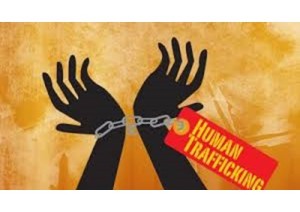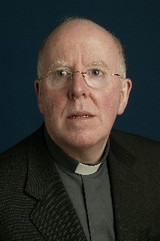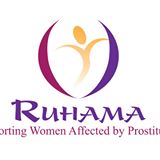
By Ann Marie Foley - 09 February, 2015
 Ruhama has called on the Irish Government to quickly enact a law which criminalises the purchasers of sex.
Ruhama has called on the Irish Government to quickly enact a law which criminalises the purchasers of sex.
The charity, which helps women affected by prostitution and trafficking, has claimed that there may be an influx of sex buyers from Northern Ireland when legislation comes in there in June.
Similar legislation to criminalise the purchase of sex in the Republic of Ireland will not come in till much later in the year.
Sarah Benson of Ruhama told RTÉ News that there already signs on internet websites that customers of prostitution in Northern Ireland are making plans to move their activities South of the border so as to avoid prosecution.
The Republic of Ireland legislation has to pass through both the Dáil and the Seanad and so may not be enacted until the end of 2015.
The call came from Ruhama on Sunday 8 February which marked the first International Day of Prayer and Awareness Against Human Trafficking and the feast day of St Josephine Bakhita.
She was sold into slavery as a young child and whose faith-filled struggle for liberation provides hope and inspiration for those in similar situations.

Bishop John McAreavey of Dromore, who is Chair of the Council for Justice & Peace of the Irish Bishops’ Conference, also highlighted the special focus of day on this issue.
He stated that in 2012, bishops called for legislation to protect the human dignity of all members of society.
“We emphasised that all prostitution, even in cases where the individual has not been a victim of trafficking, reduces the human being to a commodity,” he said.
He also called for the proposed law to be enacted quickly in the Republic of Ireland.
In an article published in the Irish Independent he highlighted that human trafficking is an Irish crime, and Irish people may personally know the criminal.
It is not just subject of a far-away Hollywood movie, it is in local communities where directly or indirectly people encounter the victims of trafficking every day.
There have been trafficking victims in domestic work, agriculture, factories and in other small businesses but most victims of trafficking, who have come to the attention of the authorities, in the Republic and the North, have been women and girls forced into the sex industry.
In 2013, Ruhama, provided support to 83 women identified as victims of sex trafficking and the agency warns this is just the tip of the iceberg.
“Reports from the religious sisters who offer support to rescued victims point to a particular profile of these ‘consumers’: men in their mid-20s and up, and drawn from so-called ‘middle Ireland’. They may be married, away from home and ‘up for the match’, or on a golfing or stag weekend, on a ‘business trip’, or even taking time off during the working day,” the bishop stated.
He added Pope Francis has described the “invisible chains” which have kept victims imprisoned and cut off from the rest of society.
They fear that traffickers may kill or torture them or their families back in their home countries, or that they will be arrested for crimes they were forced into.
They often do not speak the language of the country they are in and have no idea who to turn to.
 Organisers of the International Day of Prayer and Awareness Against Human Trafficking state that around 2.5 million people continue to be victims of trafficking and slavery every year.
Organisers of the International Day of Prayer and Awareness Against Human Trafficking state that around 2.5 million people continue to be victims of trafficking and slavery every year.
Official figures estimate that there are roughly 21 million trafficked and exploited people in the world today.
Human trafficking generates some $32 billion a year making it the third most profitable “business” after drugs and arms trafficking.